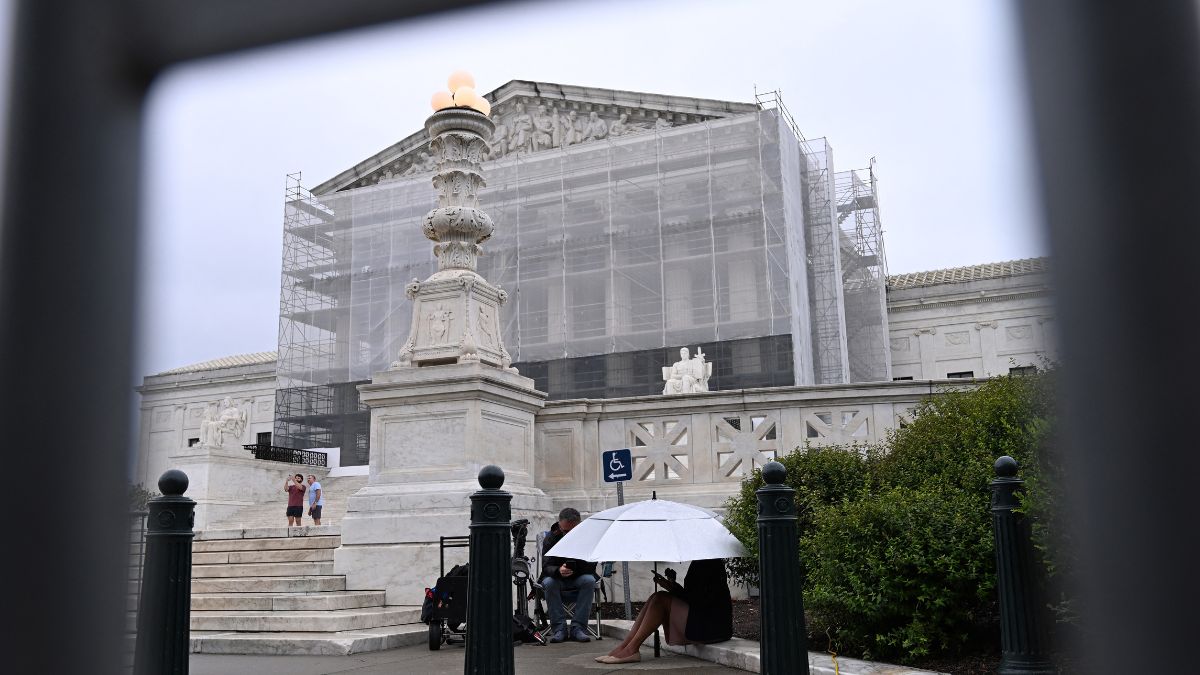The US Supreme Court on Thursday allowed President Donald Trump’s administration to enforce a policy of blocking transgender and non-binary people from choosing passport sex markers that align with their gender identity. The court’s Conservative majority’s decision is Trump’s latest win in enforcing arbitrary laws.
The Thursday ruling by the apex American court blocked a lower court order requiring the government to keep allowing people to choose male, female, or X on their passports to align with their gender identity on new or renewed passports.
US Attorney General Pam Bondi went on to hail the Supreme Court’s judgment in her latest post on X, formerly known as Twitter. “Today’s stay allows the government to require citizens to list their biological sex on their passports. In other words: there are two sexes, and our attorneys will continue fighting for that simple truth," Bondi wrote in her post.
‘Pointless but painful perversion’: Liberal justices oppose the move
The conservative majority in the Supreme Court helped the Trump administration to get a decision in their favour, despite the fact that three liberal judges in the court vehemently opposed it. Soon after the ruling, Justice Ketanji Brown Jackson called the decision a “pointless but painful perversion”.
“Such senseless sidestepping of the obvious equitable outcome has become an unfortunate pattern. So, too, has my own refusal to look the other way when basic principles are selectively discarded. This Court has once again paved the way for the immediate infliction of injury without adequate (or, really, any) justification,” she said in her statement.
“What the Government needs (and what it does not have) is an explanation for why it faces harm unless the President’s chosen policy is implemented now. It suggests that there is an urgent foreign policy interest in dictating sex markers on passports, but does not elaborate as to what that interest might be,” she added.
Quick Reads
View AllThe US Department of State changed its passport rule after Trump signed an executive order in January declaring the United States would “recognise two sexes, male and female”, based on birth certificates and “biological classification”.
Transgender actor Hunter Schafer, for example, said in February that her new passport had been issued with a male gender marker, even though she has been marked female on her driver’s license and passport for years. The plaintiffs of the lawsuit argued that passports limited to the sex listed on a birth certificate can spark harassment or even violence for transgender people.
“By classifying people based on sex assigned at birth and exclusively issuing sex markers on passports based on that sex classification, the State Department deprives plaintiffs of a usable identification document and the ability to travel safely,” attorneys wrote in court documents.
It is pertinent to note that sex markers began appearing on American passports in the mid-1970s, and the federal government started allowing them to be changed with medical documentation in the early 1990s. In 2021, a change in the rule by former US President Joe Biden removed documentation requirements and allowed non-binary people to choose an X gender marker after years of litigation.
In June, a judge blocked Trump’s policy after a lawsuit was filed by non-binary and transgender people, some of whom said they were afraid to submit applications. An appeals court later left the judge’s order in place.
During the hearing of the case, Solicitor General D John Sauer pointed to the Supreme Court’s recent ruling upholding a ban on transition-related healthcare for transgender minors. He also argued Congress gave the president control over passports, which overlaps with his authority over foreign affairs.
“It is hard to imagine a system less conducive to accurate identification than one in which anyone can refuse to identify his or her sex and withhold relevant identifying information for any reason, or can rely on a mutable sense of self-identification,” Sauer wrote in court documents.
With inputs from The Associated Press.


)

)
)
)
)
)
)
)
)



